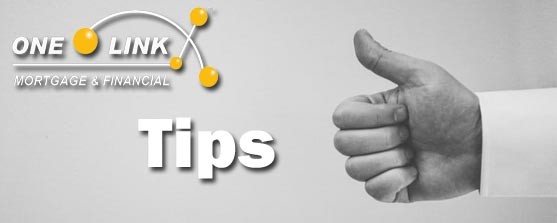Blog


Tuesday
3
OCTOBER
2017
First Time Home Buyer Tips on the Common Costs of Owning a Home

Are you considering becoming a first time home buyer? No doubt, you have done your research on down payments and closing costs, but if you are switching from renting to owning, there may be some costs you aren't aware of that you will need to keep in mind going forward. Rest assured your Winnipeg mortgage broker will be able to assist you with any questions you may have about the possible costs you may encounter in your new home.
To get you started planning a budget, below is a list of common costs that you could incur after you have moved:
1) Property Tax - Many of services you will enjoy in your new neighbourhood, from parks and recreation facilities to road maintenance and schools, are funded by municipal property taxes. Annual taxes can top thousands of dollars in urban centres, so some homeowners opt to pay in installments - your lender may provide an option to combine these with your mortgage payments. Ask your Winnipeg mortgage broker for more details.
2) Energy Costs - If you are used to keeping the lights on and the thermostat up because utilities are included in your rent, you will now have to pay for these costs. Budget to cover monthly gas, electric, or oil bills which fluctuate with the seasons. Tip - ask your real estate agent to ask a home's seller to confirm past costs.
3) Home Maintenance - Plan to cover the occasional costs to keep your house in working order, such as changing furnace filters, carpet cleaning, clearing your eavestroughs, and touching up interior or exterior paint. You will find it easy to spend $30.00 or more a month on such home maintenance items and services.
4) Repairs - These are larger, less frequent expenses like replacing the roof, furnace, air-conditioning units or appliances. Housing experts recommend setting aside 1% to 3% of the value of your house each year - a minimum $1,000 for every $100,000.
5) Home Insurance - Protect your home, its contents, and your property against damage or liability. Prices can vary, depending on your home and neighbourhood, but plan for costs that typically start at a minimum of $500 per year. Keep in mind that a lower-cost policy may not offer the comprehensive coverage you may want. You can keep costs down by choosing a higher deductible.
6) Fuel or Transit Costs - If you will be commuting a longer distance to work, consider whether you will face higher fuel or public transit costs or whether you will have to pay for parking.
7) Monitored Security - If you opt for home protection, monitoring can cost anywhere from $20 to $40 or more per month, depending on the plan.
8) Phone, Cable and Internet Services - The costs of being "connected" can easily add up to a couple of hundred dollars a month. Moving into a new home might be a good time to consider whether you need both a landline and a wireless line, for instance, or if you can bundle services for a discount.
9) Property Upkeep - Consider outdoor areas that may need tending to, such as wooden decks, fences, gardens, and lawns. Even when you do the work yourself, budget at least a few hundred dollars seasonally for items like wood sealant, landscaping supplies and plants.
10) Municipal Services - Some municipalities charge fees for services like water or garbage removal. For example, homeowners in some larger urban centres pay $150 to $35 a year for curbside collection or garbage, recycling, and compost.
If you are interested in finding our more about your home financing options, give us a call today at 204-954-7620. We are always happy to answer any mortgage related questions you may have!